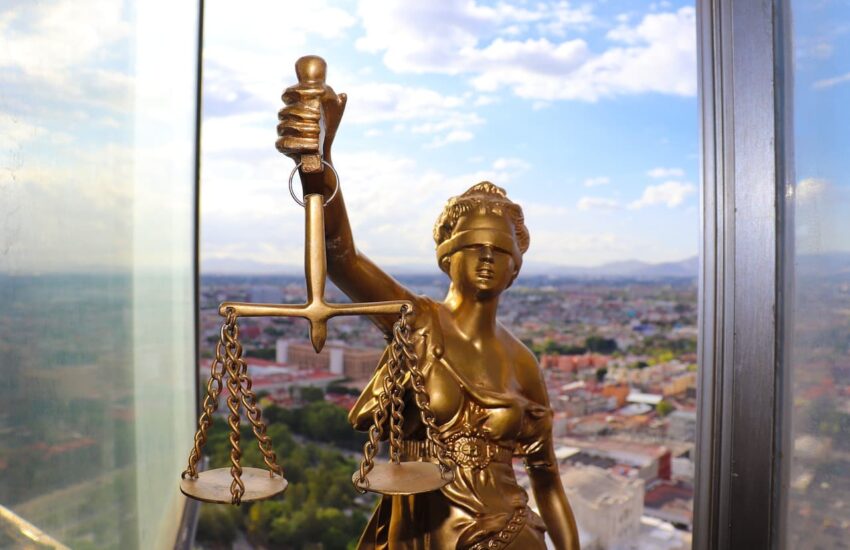Higher education
Higher education in the United States is divided into several levels:
1) general higher education, which can be obtained at a college, with a period of study of 3-4 years (a bachelor’s degree is issued upon completion);
2) higher specialized (professional) education, which can be obtained at a specialized school or college of a university, with a period of study of 3 years (at the end a diploma is issued and a Doctor of Jurisprudence degree is awarded);
3) training for the degree of Master of Law – 1 year;
4) training for the degree of Doctor of Law – 2-3 years.
The university entrance examination is substituted by the aptitude test sent to the applicant by mail. The applicant’s college grades are also taken into account. The competition for admission to a law school is quite high: about 130,000 people for about 40,000 places. The competition for the elite universities is 40 people per place.
Compulsory disciplines exist only during the first year (contract law, criminal law, tort law, administrative law). In the subsequent years of study, there is a mandatory minimum number of subjects to be studied by the student.
The method of teaching in law schools is based mainly on the analysis of precedents and decisions of appellate courts; legislative and administrative law material is involved as far as it assists the analysis of precedent. The main thing in legal education is the development of the student’s analytical skills, not the memorization of a normative text. Hence the practical absence of lectures as such, and the class turns into an active interview of a teacher with an audience of students. Often teachers arrange imitations of the trial – hypothetical or from real practice, during which students must fully reproduce the functions of the participants in the process: to present and examine evidence, to present procedural motions, to present arguments, etc.
A great deal of attention is paid to instilling independent research skills. A characteristic feature of large American law schools is the publication by students themselves of legal journals – “legal reviews”. Assessment of a student’s knowledge is based solely on a written (often extracurricular) examination. The examination paper is submitted anonymously, under the motto, and is graded by a letter system (from A – the highest grade to D – equating to an “unsatisfactory” grade) or by the “passed – failed” system. Grades are not subject to disclosure to third parties by the instructor.
The Doctor of Jurisprudence degree shall be sufficient for practising law, but shall not automatically entitle the holder to practice law. To qualify to practice law in most states, one must pass an examination, the conditions of which are set by the state supreme court. A person, who is admitted to practice law after the exams, obtains the right to appear in all courts of that state. To represent a client in courts in another state, one must either take a new bar exam or obtain a special license. Permission to practice law in federal courts is automatically granted to those admitted to practice law in a state.
Formal requirements for taking the bar exam:
- A characterization from the dean of the school;
- diploma;
- questionnaire;
- fingerprints;
- Information on all offenses, including traffic accidents;
- information about all debts;
- an interview with a bar admissions committee (composed of 11 practicing lawyers and formed either by appointment by the court or governor of the state or by the state bar association);
- Payment of a fee of about $500. THE FEE IS IN THE ORDER OF $500.
Exam Procedure. The examination is taken twice a year. That being said.
The pass rate is about 78% of all candidates. Those who do not pass the exam have the right to retake it an unlimited number of times, and each time for a fee. The exam consists of an oral interview and a written paper. Applicants take the exam in the following disciplines:
- federal law;
- Ethics and professional responsibility of lawyers;
- an essay in the form of answers to problems on specific legal situations (testing the knowledge, interpretation and application of legal norms of the state in which the exam is taken).
It should be noted that passing the above disciplines is not enough to obtain a patent, as the commission also looks at such criteria as “good character.”
In order to maintain the validity of a patent, a lawyer must annually improve his or her qualifications in a certain number of hours (at least 12).
The patent can be revoked for committing a crime, and it can be suspended for three years for certain violations of the law and professional ethics (for example, contempt of court, with a reasonable client complaint of unprofessionalism).
The members of bar associations are not only practicing attorneys, but also persons working as legal advisors and lawyers working for the prosecutor’s office. In the United States there are the following types of bar associations:
- State Bar Associations – A formal association of all state attorneys that handles licensing, oversees attorneys’ compliance with professional ethics, and imposes disciplinary action;
- Voluntary associations of lawyers – associations of lawyers operating at the city, state, national level, engaged in professional development of their members, rendering free legal assistance on a voluntary basis.
Nationally, these associations are coordinated by the American Bar Association, which has about 600,000 members. Association members include:
- individual members: attorneys, government agency lawyers, legal theorists, and law students;
- collective members: specialized professional organizations of lawyers, such as the Society of Judges, the National Association of Attorneys General, the National Association of Criminal Defense Lawyers, and the National Association of Women Lawyers.
The Association’s scope of activity includes the following issues:
- problems of professional ethics;
- drafting of legislation;
- Developing uniform standards for the practice of law and the principles of the administration of justice;
- Opinions on federal judicial nominees, including U.S. Supreme Court Justices and federal prosecutors.
Membership in the Association is open to U.S. citizens who hold a law degree and are admitted to practice law. Foreign lawyers not admitted to practice in the United States may become foreign members of the Association.
General affairs of the Association shall be considered at the annual convention.








